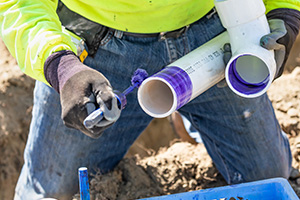 When it comes to beginning any major construction project, proper excavation services are essential. Excavation involves more than simply digging; it requires precision, skill, and the right equipment to prepare a site that supports the safety and stability of structures. From small-scale residential projects to large commercial or industrial builds, choosing a professional excavation team ensures your site is ready for the next phase of construction.
When it comes to beginning any major construction project, proper excavation services are essential. Excavation involves more than simply digging; it requires precision, skill, and the right equipment to prepare a site that supports the safety and stability of structures. From small-scale residential projects to large commercial or industrial builds, choosing a professional excavation team ensures your site is ready for the next phase of construction.
In this post, we’ll explore the types of excavation services available, the process involved, and why it’s crucial to hire a skilled team.
What are Excavation Services?
Excavation services involve the careful removal of soil, rocks, and other materials to prepare a construction site. It’s an essential step in creating a level base for foundations, roads, utility systems, and landscaping. An experienced excavation contractor uses specialized equipment to perform various tasks, including grading, trenching, soil compaction, and clearing.
Key services often include:
- Site Clearing and Preparation: Removal of vegetation, rocks, and debris from the land.
- Grading: Ensuring the ground is leveled to provide a stable foundation.
- Trenching: Digging trenches for utilities like water, gas, or electrical lines.
- Erosion Control: Protecting the site from erosion that could destabilize structures.
- Ditch and Drainage System Installation: Essential for water management on the property.
Whether you’re planning to build a new home, a commercial building, or infrastructure for an industrial site, excavation is a crucial starting point.
Types of Excavation Services
- Residential Excavation Services Residential excavation projects can include tasks such as site leveling, foundation preparation, and drainage installation. A professional excavation team can prepare land for basements, driveways, septic systems, and landscaping elements, ensuring that every residential site is properly equipped for construction.
- Commercial Excavation Services Commercial excavation projects often demand a larger scope and higher precision. These services cover site preparation for business parks, shopping centers, and multi-story buildings. Experienced excavation contractors use heavy machinery to clear larger areas, manage soil compaction, and install foundational trenches, creating a durable base for commercial construction.
- Industrial Excavation Services Industrial sites often require extensive groundwork, including foundation work for warehouses, manufacturing plants, and infrastructure systems. Industrial excavation services frequently include grading, trenching for utility lines, erosion control, and large-scale land clearing.
- Excavation for Utility Installation Digging trenches for utility lines, such as gas, water, and electricity, requires expertise and precision. Professional excavators ensure these trenches meet all necessary depth and safety standards, reducing the risk of line damage in the future.
- Roadway and Infrastructure Excavation This type of excavation is essential for highway construction, sidewalk installations, and other infrastructure projects. Contractors use specialized equipment to clear and grade the land, ensuring smooth and safe roads.
The Excavation Process
- Site Analysis and Planning: The excavation team assesses the site, identifying soil conditions, elevation, and environmental factors. This analysis helps in planning the best approach for safe and effective excavation.
- Clearing and Grubbing: The first phase involves removing vegetation, rocks, and debris to prepare a clean, workable surface.
- Excavation and Grading: Heavy equipment, such as backhoes and excavators, removes the soil and levels the ground as per the project’s design specifications.
- Soil Compaction: Compacting the soil is crucial for creating a stable base, particularly in areas prone to shifting. Soil compaction reduces the risk of settling, helping to support building stability over time.
- Erosion Control and Drainage: Proper drainage and erosion control measures are essential to maintain the integrity of the site. The team installs drainage systems, ensuring that water flows away from the foundation to prevent flooding and erosion issues.
Why Choose Professional Excavation Services?
- Safety Compliance: Excavation work can be hazardous, with potential risks like cave-ins or exposure to buried utilities. Professional contractors follow stringent safety guidelines to protect workers and the surrounding environment.
- Expertise and Equipment: Hiring a professional team means access to skilled operators and specialized equipment that can handle various terrain and conditions.
- Cost-Effective Solutions: A reputable excavation team minimizes costly delays and ensures the job is done correctly from the start, preventing future structural issues.
- Environmental Consideration: Skilled excavation contractors are trained to handle environmental concerns, such as erosion and water management, which is essential for long-term site stability.
How to Choose the Right Excavation Company
When selecting an excavation contractor, consider their experience, licensing, and equipment availability. Look for contractors who specialize in the type of excavation your project requires, whether it’s residential, commercial, or industrial. Customer reviews and past project portfolios can provide insight into their work quality and reliability.
Final Thoughts on Excavation Services
Proper excavation is the foundation for any successful construction project, creating a safe and stable base that ensures the longevity of the structure. By choosing a skilled excavation service provider, you’re investing in the stability, safety, and quality of your project from the ground up. Whether you’re tackling a small landscaping project or embarking on large-scale commercial construction, a professional excavation team is essential for a successful build.
For more information about professional excavation services or to get started on your next project, contact us today!
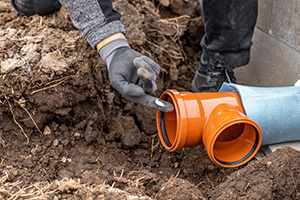 Plumbing issues can be frustrating, especially when the cause of the problem is hidden deep within your pipes. This is where a plumbing camera, also known as a sewer camera or drain camera, comes into play. With advanced technology, plumbing cameras provide a non-invasive way to inspect your plumbing system, helping identify issues before they become costly repairs.
Plumbing issues can be frustrating, especially when the cause of the problem is hidden deep within your pipes. This is where a plumbing camera, also known as a sewer camera or drain camera, comes into play. With advanced technology, plumbing cameras provide a non-invasive way to inspect your plumbing system, helping identify issues before they become costly repairs.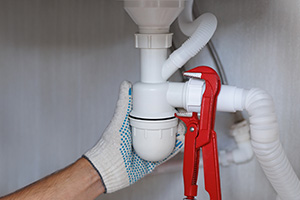 When it comes to maintaining a business, reliable plumbing is essential. From restaurants and retail stores to office buildings and industrial complexes, commercial plumbing systems face unique challenges that require specialized expertise. In New Jersey, businesses trust NJ Plumbing for top-tier commercial plumbing services that keep their operations running smoothly.
When it comes to maintaining a business, reliable plumbing is essential. From restaurants and retail stores to office buildings and industrial complexes, commercial plumbing systems face unique challenges that require specialized expertise. In New Jersey, businesses trust NJ Plumbing for top-tier commercial plumbing services that keep their operations running smoothly.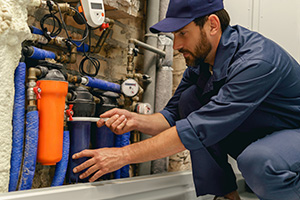 Effective plumbing is essential for the smooth operation of any business.
Effective plumbing is essential for the smooth operation of any business. 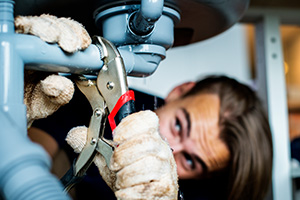 In the bustling environment of modern business operations, a reliable plumbing system is essential for ensuring smooth and uninterrupted service.
In the bustling environment of modern business operations, a reliable plumbing system is essential for ensuring smooth and uninterrupted service.